Downloads
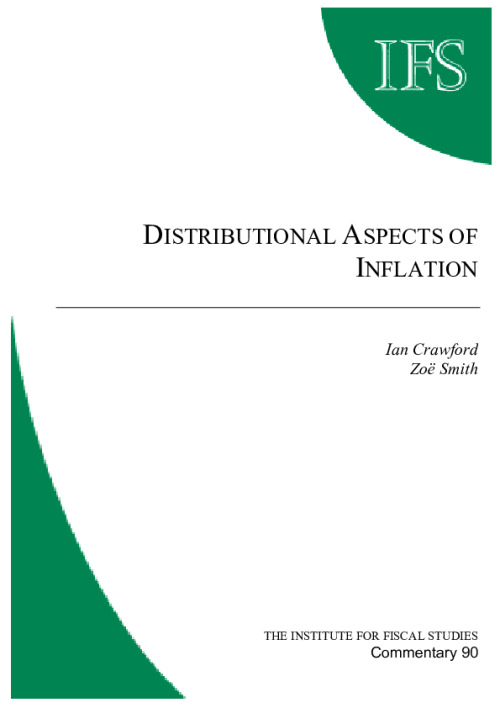
comm90.pdf
PDF | 622.33 KB
The main measure of inflation in the UK is the retail price index (RPI). One way to think of the RPI is as a measure of the changing cost of buying a very large shopping basket containing all of the purchases of a typical UK household. There is, of course, no such thing as a typical household. As a result, inflation varies across the household population, and it would be remarkable if the RPI were a good measure of inflation for every household. This IFS commentary explores the issues surrounding the extent and the implications of differences in inflation rates between households.
Authors

Ian Crawford

Head of Data Services
Zoe is Head of Data Services. She joined the IFS in 1998 as a researcher and moved into Data Services in 2011.
Report details
- DOI
- 10.1920/co.ifs.2002.0090
- ISBN
- 978-1-903274-26-2
- Publisher
- IFS
Suggested citation
Crawford, I and Oldfield, Z. (2002). Distributional aspects of inflation. London: IFS. Available at: https://ifs.org.uk/publications/distributional-aspects-inflation (accessed: 4 April 2025).
Press release
More from IFS
Understand this issue

Two-child limit mitigation in Scotland would help larger poor families but policy design could harm work incentives
Mitigating the two-child limit policy would be an effective way to reduce child poverty, but designing an effective policy is not straightforward.
14 March 2025

How to reduce child poverty: compare the policy options
Use these charts to compare policies for reducing child poverty and to examine how child poverty rates have changed over time across different groups.
3 October 2024

How can government reduce child poverty?
We're exploring why there's been an increase in child poverty since 2010 and options the government has to reduce this.
3 October 2024
Policy analysis

How did tax credits transform the UK welfare system?
Over 20 years since they were introduced, tax credits have now been replaced by universal credit. How did they change the UK welfare system?
4 April 2025
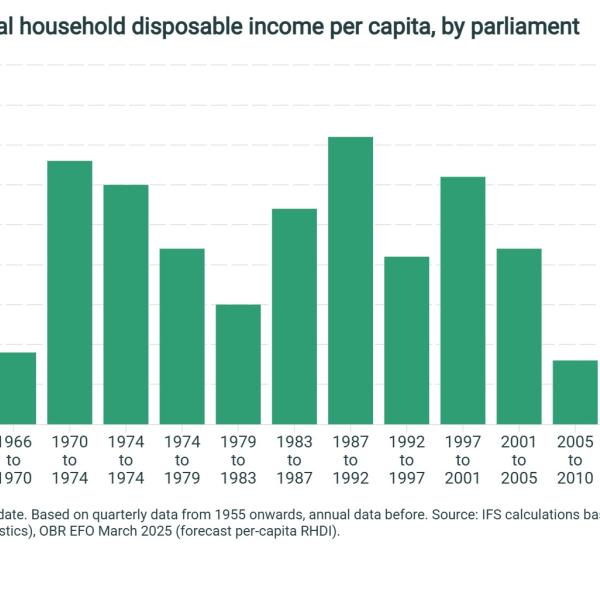
Average annual growth in real household disposable income per capita, by parliament
Latest OBR forecasts suggest living standards will rise by just 0.6% per year over the current parliament.
1 April 2025

Enlisting consumers in tax enforcement: a policy review
This paper examines the rise of consumer incentives in tax enforcement and the conditions under which they can enhance compliance and raise revenue.
31 March 2025
Academic research
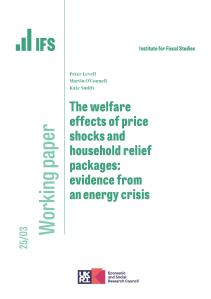
The welfare effects of price shocks and household relief packages: Evidence from an energy crisis
How should governments respond to rapid increases in the cost of living driven by shocks to the prices of staple goods?
31 January 2025
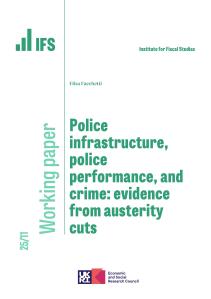
Police infrastructure, police performance, and crime: evidence from austerity cuts
Focusing on a wave of austerity cuts, I show that police station closure increased violent crimes in census blocks near the defunct stations.
27 March 2025
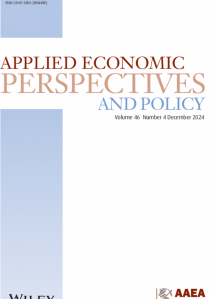
Does the reference period matter when evaluating the effect of SNAP on food insecurity?
Supplemental Nutrition Assistance Program (SNAP) is the cornerstone food assistance program in the United States.
1 December 2024